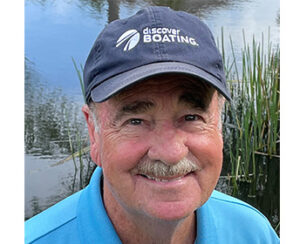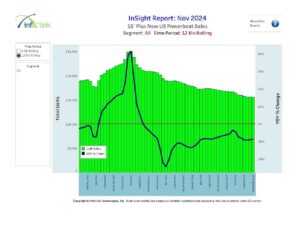Federal, state and local agencies across the country will turn up boating safety enforcement operations for the upcoming July 4 weekend, which is traditionally the summer’s single biggest boating and fishing weekend.
Branded Operation Dry Water, the stepped-up boating safety enforcement is aimed at decreasing alcohol- and drug-related accidents on the nation’s waterways by increasing public awareness. The Coast Guard’s Boating Safety Division coordinates this national outreach in partnership with the National Association of State Boating Law Administrators and other members of the boating community.
Brian Moore, Coast Guard recreational boating safety specialist, notes: “Our hope is Coast Guard units, along with all the other participating agencies, will see a long-term benefit of accident and fatality reduction by conducting their own Boating Under the Influence campaign.”
In 2022, more than 7,800 officers from 630 local, state and federal agencies participated in the heightened BUI enforcement effort. Together, they contacted 350,472 boaters aboard 126,832 recreational vessels. There were 794 BUI arrests, and while the prime focus of Operation Dry Water is stopping boating under the influence of alcohol or drugs, there were also 33,198 warnings and 11,869 citations issued for other boating-related safety violations.
Agencies in virtually all 56 states and territories will participate in this year’s program. Many utilize boating checkpoints as one approach. That said, it’s logical that all marine dealers and marina operators across the country should also be calling customer attention to Operation Dry Water as a part of a consistent effort to urge safe, sober boating practices and education.
No one can disagree that boating accidents and deaths resulting from BUI are bad for the boating business – especially because BUI tragedies are 100 percent preventable. No one should have a problem with preventing or removing impaired operators from our waterways.
While each state may participate in different chosen ways, Ken Alvey, former chief of the Ohio Division of Watercraft and past president of the Lake Erie Marine Trades Association, recalls operating in this manner:
“All our planned boating checkpoints were publicly announced weeks in advance,” explains Alvey, “and intentionally shared with all media in the area. We wanted news coverage about the coming operation. So, our checkpoints were as much a publicity event as they were to seek strict, law-enforcement over intoxicated operation. We also worked hard to make known the serious risks to boat passengers, all other boaters underway, along with the operator.”
Alvey also commented that in Ohio there was continuing promotion of the long-standing “Sober Skipper” program and consistent messaging about always having a designated operator.
Operation Dry Water has resources to help. They include items such as printable flyers and posters. There are Facebook cover photos and general information that can be used in emails to customers, posted on dealership websites and more — all free.
Click here for additional information on Operation Dry Water.











